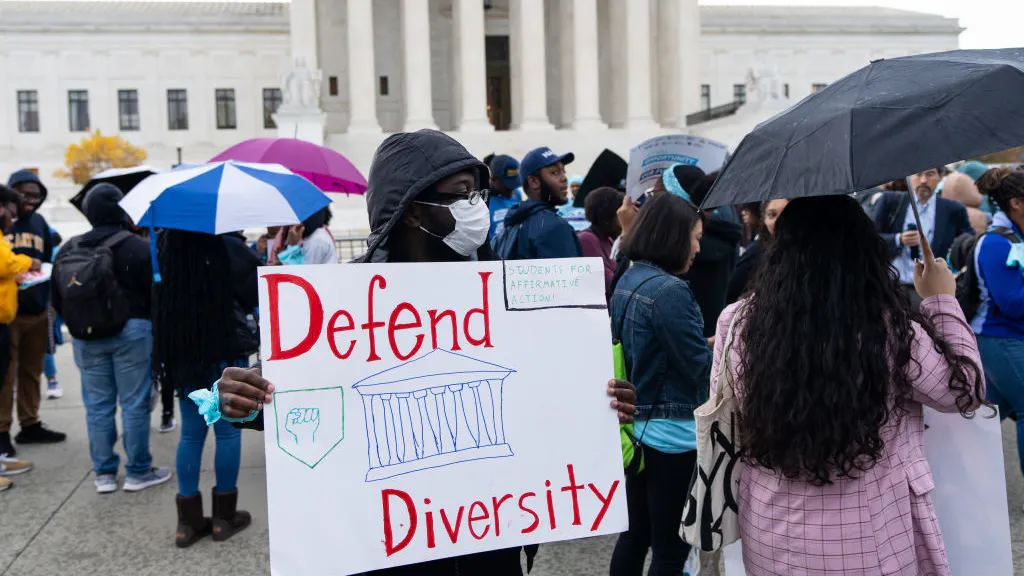The Supreme Court is poised to rule on affirmative action at universities in a pair of cases involving Harvard University and the University of North Carolina.
The court is widely expected to roll back affirmative action policies at universities, leading many schools to prepare for the consequences, according to Axios.
A group called Students for Fair Admissions sued the elite schools, accusing them of unfairly factoring race into their admissions processes. The group pointed to the high test scores of Asian-American and white applicants who were rejected.
Students for Fair Admissions argues that Harvard has violated Title VI of the Civil Rights Act, which prohibits racial discrimination by schools that receive federal funding. In the other case, the group accuses the University of North Carolina of violating the 14th Amendment’s equal protection clause by considering race in its admissions process.
“Racial classifications are wrong,” the student group’s attorney, Patrick Strawbridge, said in his opening argument back in October.
“This court has always said that racial classifications are invidious,” Strawbridge said.
The plaintiffs are asking the Supreme Court to overrule a 2003 case, Grutter v. Bollinger, in which the court ruled that the University of Michigan Law School may consider race in its admissions process.
At the time Grutter was decided, Justice Sandra Day O’Connor said, “We expect that 25 years from now, the use of racial preferences will no longer be necessary.”
CLICK HERE TO GET THE DAILYWIRE+ APP
During opening arguments, several of the court’s conservative justices questioned the merits of race-based admissions, sparking speculation that they lean towards ending it.
“When does it end? When is your sunset? When will you know?” asked Justice Amy Coney Barrett. “What if it continues to be difficult in another 25 years?”
“I’ve heard the word diversity a number of times, and I don’t have a clue what it means,” said Justice Clarence Thomas, adding that he “doesn’t put much stock” in arguments for diversity because he has heard similar arguments for segregation.
As the court’s decision looms, hundreds of universities that consider race in admissions and scholarship decisions are scrambling to find non-race-related ways to replace affirmative action if SCOTUS rules against it.
Cornell University has established a task force to figure out how the New York Ivy League school will recruit diverse classes if the Supreme Court rolls back affirmative action.
Some schools are beginning to move away from using standardized test scores in the admissions process as the argument that argument that standardized testing harms minority students picks up steam. In March, Columbia University became the first Ivy League school to permanently scrap its standardized test requirement, allowing hopeful applicants to skip the dreaded SAT and ACT. Previously, a low SAT or ACT score meant automatic elimination at most top-tier schools.
Some schools are also considering requiring more essays for admission to get a better idea of a student’s background, while others plan to recruit students from minority areas or admit more students transferring from community college.
Back in 1995, the University of California system board of regents banned affirmative action so UC adopted roundabout ways of trying to identify minority students, such as through poor neighborhoods and family income. Depending on the court’s decision, some schools may now follow in UC’s footsteps.
Some American companies worry that a ruling against affirmative action could end up applying to them as well. If such a ruling is broad enough, it could potentially apply to companies that enforce racial diversity when choosing which job applicants to hire.
Both a broad or a narrow ruling will likely spark future legal challenges from affirmative action supporters, however.
Meanwhile, a majority of Americans, 62%, oppose race-based college admissions, according to a recent Reuters poll.

.png)
.png)

